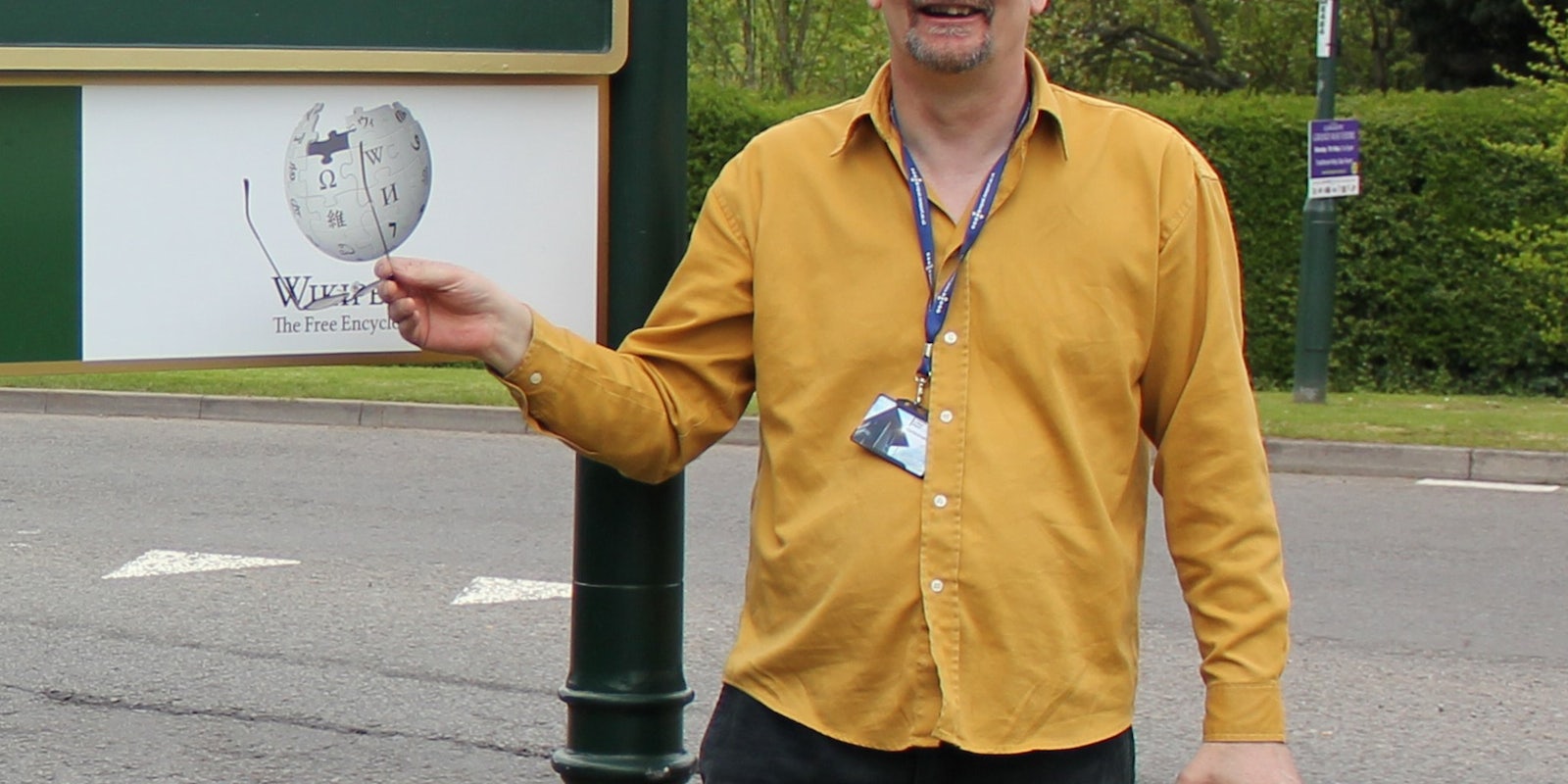A pair of high-profile scandals is rocking the Wikipedia world.
Richard Bamkin, a trustee for the UK branch of Wikimedia, the foundation that runs “the free encyclopedia that anyone can edit,” has been accused of essentially selling his influence in exchange for front-page advertising space on one of the most trafficked websites in the world.
The story was first reported by CNET’s Violet Blue, though the allegations had been swirling in Wikipedia talk pages and outside forums for days. At their heart is Bamkin, who in addition to his formal association with Wikimedia, also has a paying gig for the government of Gibraltar.
Articles about Gibraltar were featured 17 times in the site’s highly valuable “Did You Know” section during the month of July. The only subject to rack up more entries over the same time period was the Olympics, Blue reported. Articles in the section receive prominent placement on the Wikipedia home page, and its purpose is to highlight new or revamped entries. Traffic from Did You Know clocks in at several million unique visitors every month.
That’s some very special treatment for a little peninsula on the southern tip of Spain with a population of about 30,000.
Bamkin has claimed that his association with Gibraltar extended only to a very specific project: placing QR code plaques around the peninsula—on landmarks, monuments, and other tourist spots—for a project called “Gibraltarpedia.” The idea is to allow anyone to scan barcodes with a smart phone and pull up relevant Wikipedia articles.
The Gibraltar project is an offshoot of Bamkin’s previous work for Monmouthpedia, which similarly plastered a Welsh city with QR codes that link to Wikipedia articles.
“There is no paid editing involved,” Bamkin wrote on his formal disclosures section at Wikimedia.
Jimmy Wales, Wikipedia’s cofounder, declined to speak on the specific allegations about Bamkin. He did say, however, that if they were proven to be true, Bamkin should either resign from Wikimedia UK or his paid position with Gibraltar:
It is wildly inappropriate for a board member of a chapter, or anyone else in an official role of any kind in a charity associated with Wikipedia, to take payment from customers in exchange for securing favorable placement on the front page of Wikipedia or anywhere else. This is just one very narrow example of a much broader principle that it’s wrong to work in any capacity whatsoever editing content as a paid advocate within Wikipedia.
As allegations swirled around Bamkin, Wikipedians dug up another example of extracurricular consulting from yet another influential member of the community. Max Klein, an editor, runs a firm called Untrikwiki that promises to help clients boost their rankings in Google search results with positive Wikipedia articles.
A positive Wikipedia article is invaluable [for search engine optimization]: it’s almost guaranteed to be a top three Google hit. Surprisingly this benefit of writing for Wikipedia is underutilized, but relates exactly the lack of true expertise in the field. … WE HAVE THE EXPERTISE NEEDED to navigate the complex maze surrounding ‘conflict of interest’ editing on Wikipedia. With more than eight years of experience, over 10,000 edits, and countless community connections we offer holistic Wikipedia services.
Wikipedia cofounder Jimmy Wales didn’t mince words when he heard of the allegations against Klein: “I was unaware of this case, and haven’t had time to look into it. If what you say is accurate, then of course I’m extremely unhappy about it. It’s disgusting.”
But Wales’s opinion on paid editing doesn’t reflect the site’s official stance, and some Wikipedians have gone so far as to call his views “extreme.” Indeed, there’s no official prohibition against paid editing on Wikipedia.
For his part, Klein defended his consulting work with an update on the site:
We’ve never made a single edit for which we had a conflict of interest on Wikipedia – ever. Although we have advertised such a service, we’ve not aggressively pursued it – and we have not accepted any clients interested in on-Wikipedia work.
He added:
We believe – strongly – that there’s nothing inherently wrong with accepting for-profit engagements that involve contributing to Wikipedia, as long as it’s approached in a transparent and ethical fashion.
The fact is, Klein may be right—as long as the community continues to police the site for possible conflicts of interest, as they did in the cases of both Klein and Bamkin. CNET didn’t break these scandals, after all. Wikipedians did.
Photo by John Cummings/Wikimedia


